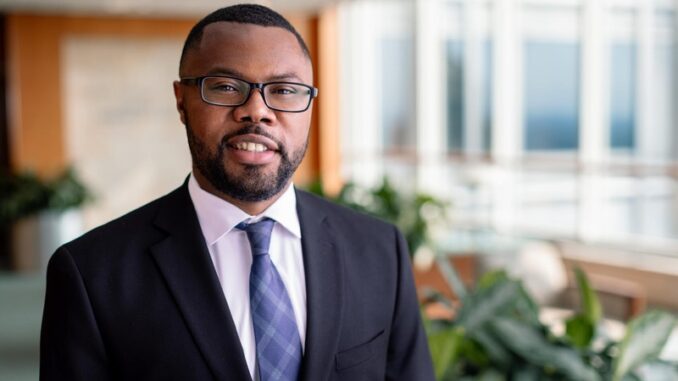
Dr. Lionel Kankeu Fonkoua, is an oncologist with the Mayo Clinic Comprehensive Cancer Center who specializes in the treatment of gastrointestinal cancers. He’s also a Robert Winn Career Development Award recipient dedicated to helping minority and at-risk patients through research and clinical trials. “It’s a program that’s designed to make sure that those clinical trials are community designed, conducted and informed to make sure that whatever research we do, we have the intent from the get-go of thinking about the communities that are at risk, vulnerable and most likely to benefit,” says Dr. Kankeu Fonkoua.
What may be surprising is that Dr. Kankeu Fonkoua says he did not intend to be a doctor. “I was supposed to be an engineer,” he says. It was his grandmother’s battle with gastric cancer. “There were not a lot of options, not a lot of meaningful treatment options, and not a lot of research going on,” says Dr. Kankeu Fonkoua. That steered him toward a new path. “My parents definitely raised me with that scientific method — both scientists — but I think the drive to go into this humane profession, the spirit behind it, is my grandmother.”
Dr. Kankeu Fonkoua’s study focuses on the immigrant African and Asian communities of Minnesota with a high prevalence of hepatitis-induced hepatocellular carcinoma — a type of liver cancer. “This is an at-risk population that we are intentionally targeting, because they are not represented in a lot of our immunotherapy trials,” he explains. And that can be a problem for the patients who need treatment the most. “It’s very important to make sure that the at-risk population — the vulnerable population that’s going to most likely benefit the most from the therapy — is represented. Because you have to tell them (and) it’s hard to tell a patient this is a study, a clinical trial, that had 1,000 patients, (and) only 1% to 2% were actually like you,” says Dr. Kankeu Fonkoua.
Representation and building trust matter when working with patients.
“It helps me (in) that initial contact, that initial trust. Someone might be more receptive if you know it’s coming from someone with the same race, from the same ethnicity or, more importantly, from the same background and life experience.” Through the study, Dr. Kankeu Fonkoua hopes to help patients who are not eligible for surgery by combining radiation therapy with a dendritic cell vaccine —a type of immune cell modified in a laboratory and given after radiation therapy. “That’s a combination of radiation therapy with dendritic cell vaccine, that’s innovation. That’s an innovative type of approach to really use the patient’s own cells to target their own tumor specific antigens.” Dr. Kankeu Fonkoua says.
He says his grandmother’s spirit inspires him still to this day. “To be honest, in every patient, I see her and the opportunity to hopefully provide better care and, hopefully, outcomes than what she had.”
Envision yourself working for a global leader in an industry fueled by innovation and growth. Mayo Clinic has opportunities for you. Join us at Florida’s No. 1 hospital by visiting https://jobs.mayoclinic.org/. For more information on health care topics please visit Mayo Clinic Jacksonville at mayoclinic.org.

Be the first to comment